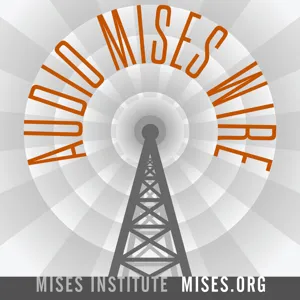Podcast Summary
Perception of Reality: People's perceptions and interpretations of reality are significantly influenced by their social context, and it's crucial to continually review and correct our perception to make better decisions.
While reality may not be a social construct in the absolute sense, people's perceptions and interpretations of reality are significantly influenced by their social context. The Thomas Theorem, which states that people define situations as real and consequential, highlights the power of subjective perception in shaping behavior. Praxeology, the methodology of Austrian economics, emphasizes the importance of understanding reality in making effective decisions. However, our perception of reality can be erroneous, and it is essential to continually review and correct it to make better decisions. The popular saying "Fafo" (Fack up and find out) underscores the importance of acknowledging the potential for error and the need to learn from our mistakes. Ultimately, both objective reality and subjective perception play crucial roles in shaping our actions and decisions. It's essential to strike a balance between recognizing the influence of social norms and expectations while maintaining a commitment to understanding and engaging with objective reality.
Perception of Reality: Reality is subjectively perceived and constructed, but empirical evidence and rational inquiry are crucial for arriving at a more accurate understanding.
The notion of objective reality being universally accepted and unchanging is a myth. Reality is subjectively perceived and constructed based on individual experiences, cultural backgrounds, and personal biases. This concept, known as constructivism, has been increasingly recognized in various fields, including mathematics and social sciences. However, it can also lead to the belief that truth is relative and everyone's perception is equally valid, which can hinder critical thinking and objective analysis. It is essential to acknowledge the influence of subjective factors on our perceptions while also recognizing the importance of empirical evidence and rational inquiry to arrive at a more accurate understanding of reality. In essence, while individual perceptions shape our reality, it is crucial to strive for truth and objectivity through rigorous investigation and critical thinking.
Reality and Identity: The complexity of reality and identity challenges our understanding of self-evident truths and the validity of personal declarations that contradict established knowledge. Evidence from our senses and scientific research provide the most reliable indicators of reality.
The nature of reality and identity is more complex than we may initially assume. The ancient Chinese philosopher Zhuang Zhao's dream of being a butterfly highlights the blurred lines between perception and reality. Similarly, the concept of gender is no longer seen as strictly binary, with scientists discovering that the sex designation of one's brain and body may not align perfectly. This complexity challenges our understanding of self-evident truths and the validity of personal declarations that contradict established knowledge. While individuals may claim to see a round square or a horse riding its own back, their statements do not hold epistemological weight. Ultimately, evidence from our own senses and scientific research provide the most reliable indicators of reality. The ongoing studies in gender science demonstrate that the spectrum of sex and gender is more nuanced than previously believed, and our understanding of these concepts continues to evolve.
Obfuscation of Ideologies: Some ideologies intentionally make their arguments complex and obscure to manipulate public understanding, paralyze critical thinking, and maintain power
The complexity and obscurity of certain academic theories and ideologies can be used to manipulate public understanding and control the narrative on important issues. The brain structure study of FTM transsexuals provides evidence for this, as it highlights the need for experts to define and understand concepts like gender. However, some ideologies, like the social construct of reality, aim to make these concepts unknowable to the average person, keeping them under the control of academic elites. This can be seen in the example of John Rawls' "A Theory of Justice," which is intentionally dense and difficult to understand, making it influential but not widely read. By making their arguments convoluted and full of obfuscations, these ideologues can paralyze critical thinking and maintain their power.
Economic theories: Study Keynes, Marx, and other experts' works for informed opinions on political and economic systems, but be cautious of overly complex texts that may lead to confusion
Gaining a deep understanding of complex economic theories and historical contexts is crucial before making informed opinions on political and economic systems, such as socialism or communism, in specific regions like Africa. Keynes, Marx, and other experts' works should be studied thoroughly to form well-rounded views. However, it's essential to be cautious of overly complex and obscure texts that may lead to confusion rather than clarity. As David Gordon's essay highlights, experts who deny objective principles can make it difficult for readers to follow their arguments. Ultimately, the responsibility for understanding reality lies with individuals, not just credentialed experts.
